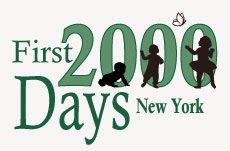An anxiety disorder is a common mental illness defined by feelings of uneasiness, worry and fear. While anxiety occurs for everyone sometimes, a person with an anxiety disorder feels an inappropriate amount of anxiety more often than is reasonable. For example, an average individual may feel some anxiety before going to a dentist appointment but a person with anxiety disorder may feel anxiety every time they leave their home.
Many people with an anxiety disorder do not realize they have a defined, treatable disorder and so anxiety disorders are thought to be underdiagnosed conditions. (Take our anxiety disorder test)
People with an anxiety disorder often have co-occurring mental health problems, such as depression, and this can increase serious risks like suicide. Often severe anxiety disorder symptoms and panic attacks are a warning sign and increase the risk of suicide.
What are Anxiety Disorders Symptoms?
Specific symptoms vary by type of anxiety disorder, but typically, anxiety disorders are defined by:- Feelings of being on edge or restlessness
- Feelings of being fearful or powerless
- Physical symptoms such as muscle tension, sweating or heart palpitations
- A sense of doom or impending danger
- Difficulty concentrating or mind going blank
- Irritability
- Sleep disturbances
Types of Anxiety Disorders
Several types of anxiety disorders are identified in the latest version of the Diagnostic and Statistical Manual of Mental Disorders (DSM-IV-TR).1- Obsessive-compulsive disorder (OCD)
- Generalized anxiety disorder (GAD)
- Panic disorder
- Posttraumatic stress disorder (PTSD)
- Agoraphobia
- Social phobia, also referred to as social anxiety disorder
- Specific phobia (also known as a simple phobia)
- Adjustment disorder with anxious features
- Acute stress disorder
- Substance-induced anxiety disorder
- Anxiety due to a general medical condition





































